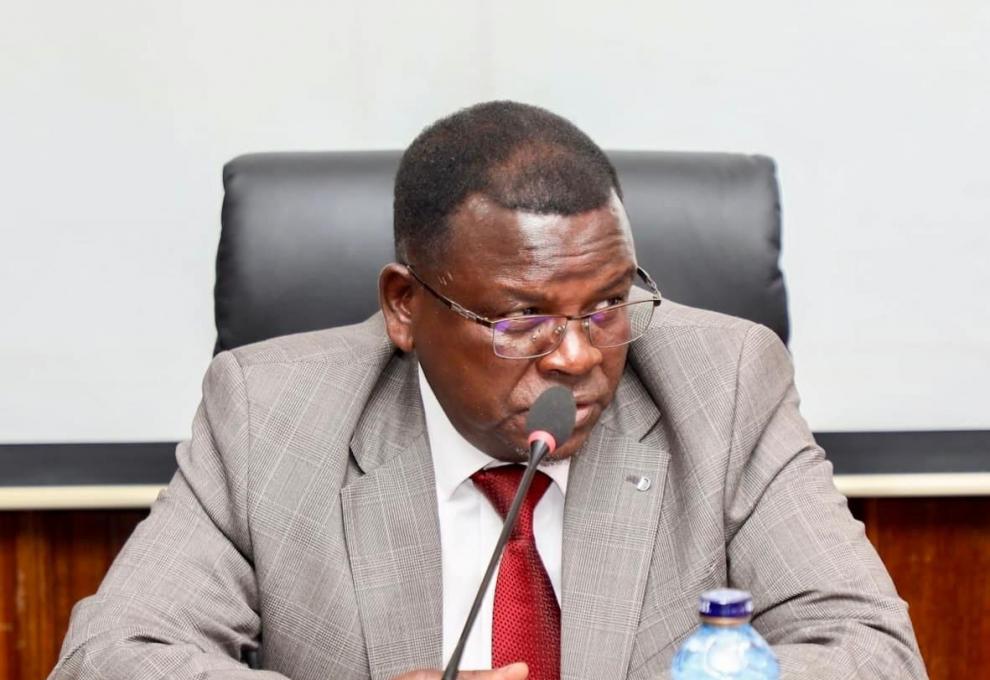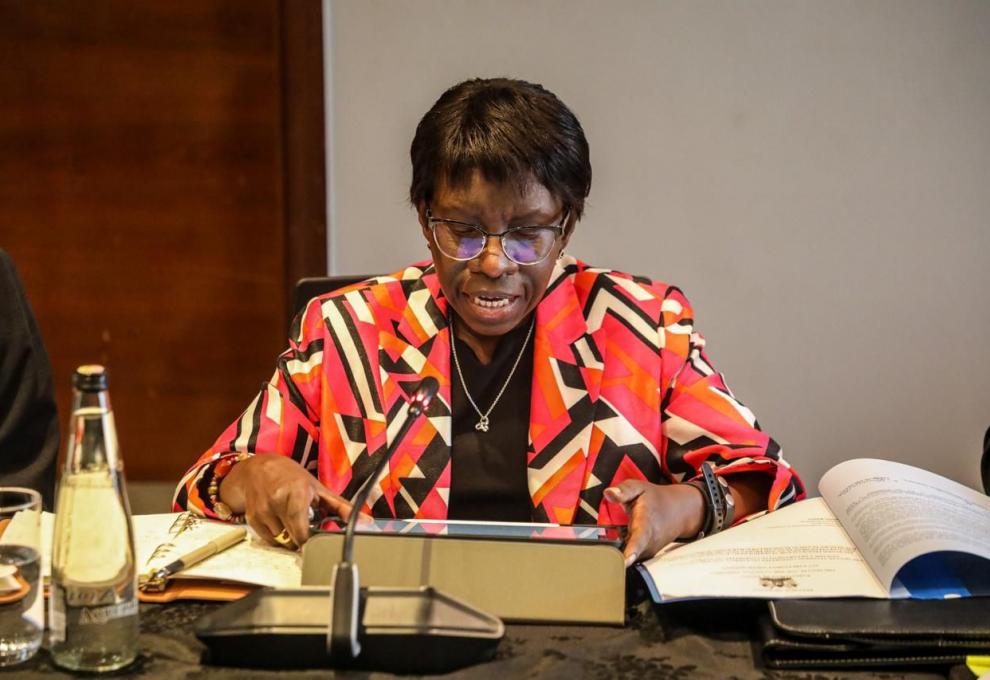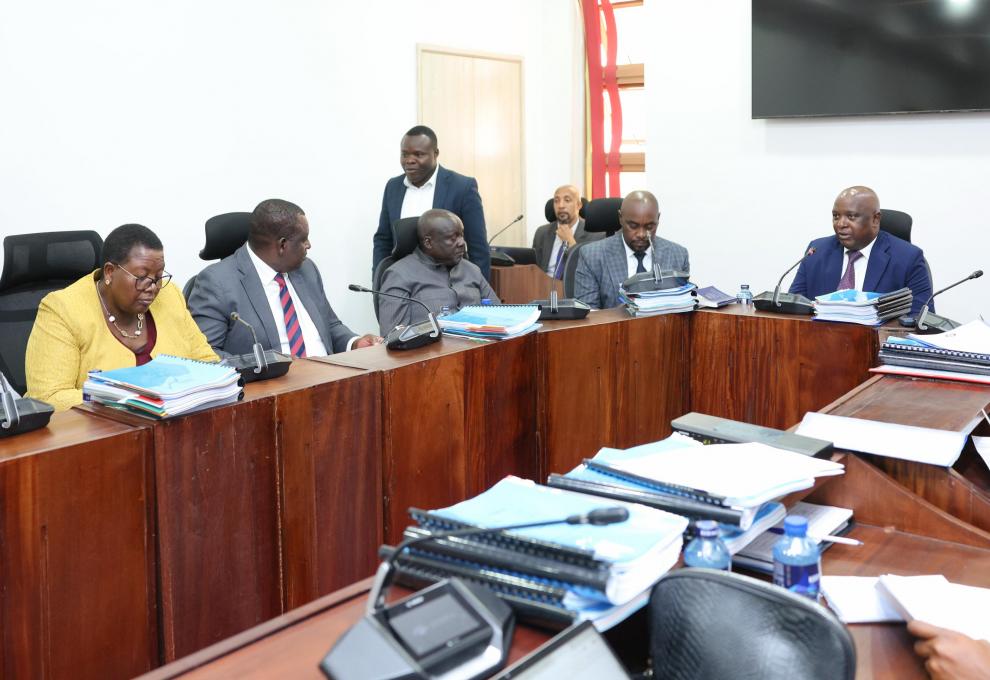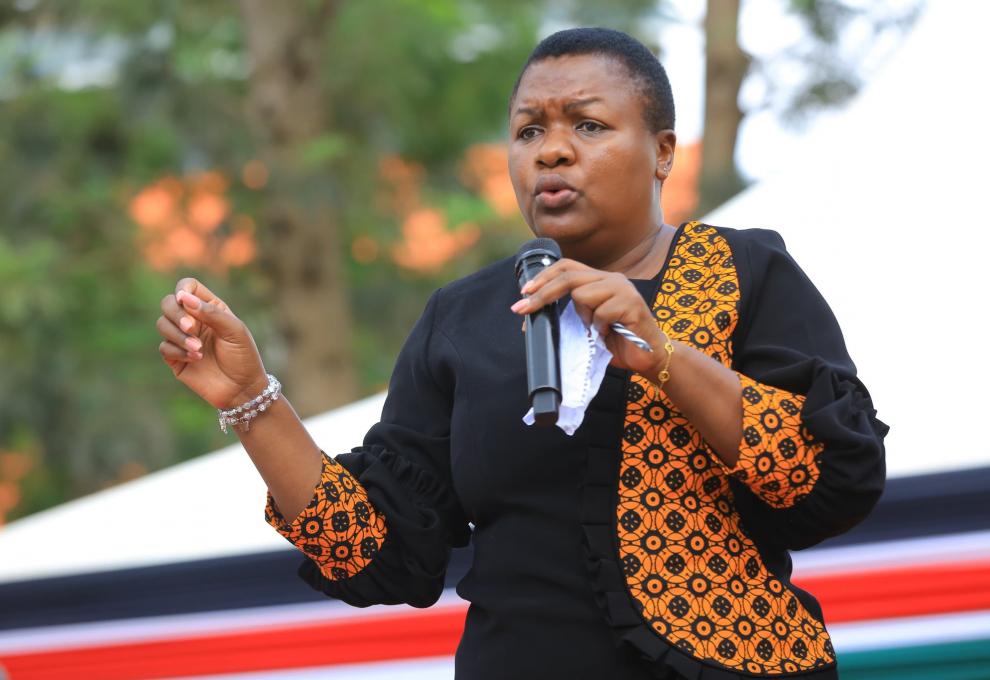𝐒𝐄𝐍𝐀𝐓𝐎𝐑𝐒 𝐏𝐑𝐄𝐒𝐒 𝐌𝐎𝐌𝐁𝐀𝐒𝐀 𝐆𝐎𝐕𝐄𝐑𝐍𝐎𝐑 𝐎𝐕𝐄𝐑 𝐃𝐈𝐒𝐀𝐁𝐈𝐋𝐈𝐓𝐘 𝐀𝐂𝐂𝐄𝐒𝐒, 𝐑𝐄𝐃 𝐓𝐀𝐏𝐄 𝐀𝐍𝐃 𝐆𝐀𝐌𝐁𝐋𝐈𝐍𝐆 𝐑𝐄𝐕𝐄𝐍𝐔𝐄𝐒
The Senate Committee on Labour and Social Welfare continued its inquiry into accessibility and governance in Mombasa on Wednesday, hearing testimony that ranged from accounts of discrimination against persons with disabilities to revelations of intergovernmental gridlock and gambling-related fiscal inefficiencies.
The committee, chaired by Sen. Julius Murgor (West Pokot), met Governor Abdulswamad Sherrif Nassir alongside county officials, disability advocates and representatives from the National Council of Persons with Disabilities and the National Construction Authority. The session followed Tuesday’s hearing on a petition led by campaigner Zedekiah Adika, who pressed senators to confront systemic failures in public infrastructure.
“Our prayers are to institute an inquiry and make recommendations to ensure public buildings in Mombasa are accessible,” Adika told the meeting, citing Bima Towers, the Betting Control Building, the deputy county commissioner’s office and the county assembly building. He pointed to a recent case where a litigant was awarded KSh 800,000 in damages, arguing that resources would be better spent on structural reforms: “Instead of awarding individuals such amounts, we could redirect these funds to correct these fundamental infrastructure mistakes.”
Governor Abdulswamad highlighted steps already taken by his administration, noting that both the Blue Economy and Lands Departments had been relocated to newly-built accessible premises and that the County Executive offices were equipped with ramps and ground-floor facilities to accommodate PWDs. But he stressed the obstacles posed by intergovernmental disputes, particularly over the Betting Control Building, which remains under the Ministry of Housing.
“We offered to repair the lifts at our own cost, but the ministry responded by asking us to pay rent,” Abdulswamad said. “How do we start paying rent on a property that I, and the Constitution of Kenya, believe belongs to the county government of Mombasa?”
Committee Vice-Chairperson, Sen. Crystal Asige, delivered a scathing critique of the State Department of Public Works’ recommendations to make Mombasa’s public offices more disability-friendly. “Access is not just about buildings,” Sen. Asige declared. “It’s about human lives.”
Asige—who sponsored the Persons with Disabilities Act, 2025—condemned the perfunctory approach to disability access, arguing that true universal design must go far beyond installing ramps and lifts. “We need to consider slip-resistant flooring, appropriate signage, audio and visual prompts,” she emphasized. “We must stop thinking of spaces as mere brick and cement, and start considering who will actually use these spaces.”
Sen. Miraj Abdullahi urged the county to ensure that heritage protections were not used as an excuse to delay improvements. She cited the Technical University of Mombasa (TUM) as a protected site that had successfully undergone recent upgrades.
Challenging the governor’s assurances, Sen. Alexander Mundigi (Embu) questioned whether the county had truly allocated resources for building renovations and accessibility upgrades. He pressed for a detailed budget breakdown, but no such figures were presented during the meeting.
The discussion later shifted to fiscal efficiency. Governor Abdulswamad revealed that Mombasa County has, for years, been paying the salaries of officers tasked with monitoring casinos—even though their reports are submitted to the Ministry of Interior. “I calculated what the salaries amount to: approximately KSh 21 million annually,” he said, contrasting the cost with the Ksh 200 million in gambling revenue that flows directly to the national government.
Debate also centred on the economic and social impact of gambling, with Governor Abdulswamad calling for a radical overhaul of revenue sharing. At present, all proceeds flow to the Kenya Revenue Authority through gaming, excise and withholding taxes, while counties collect only property taxes. Yet, Abdulswamad argued, it is counties that must fund psychiatric services and school counselling for those harmed by addiction.
“The revenue generated goes to KRA, but the human cost comes to us,” the governor told senators, proposing that gambling proceeds be apportioned to counties where the activities occur. He further revealed that rural counties now record the highest levels of gambling, driven largely by online platforms, and suggested IP address tracking as a means of more accurately attributing revenues.
The committee resolved to invite the Cabinet Secretaries for Housing and Labour to pursue the inquiry further to address intergovernmental wrangles and accessibility shortfalls in public offices.
















